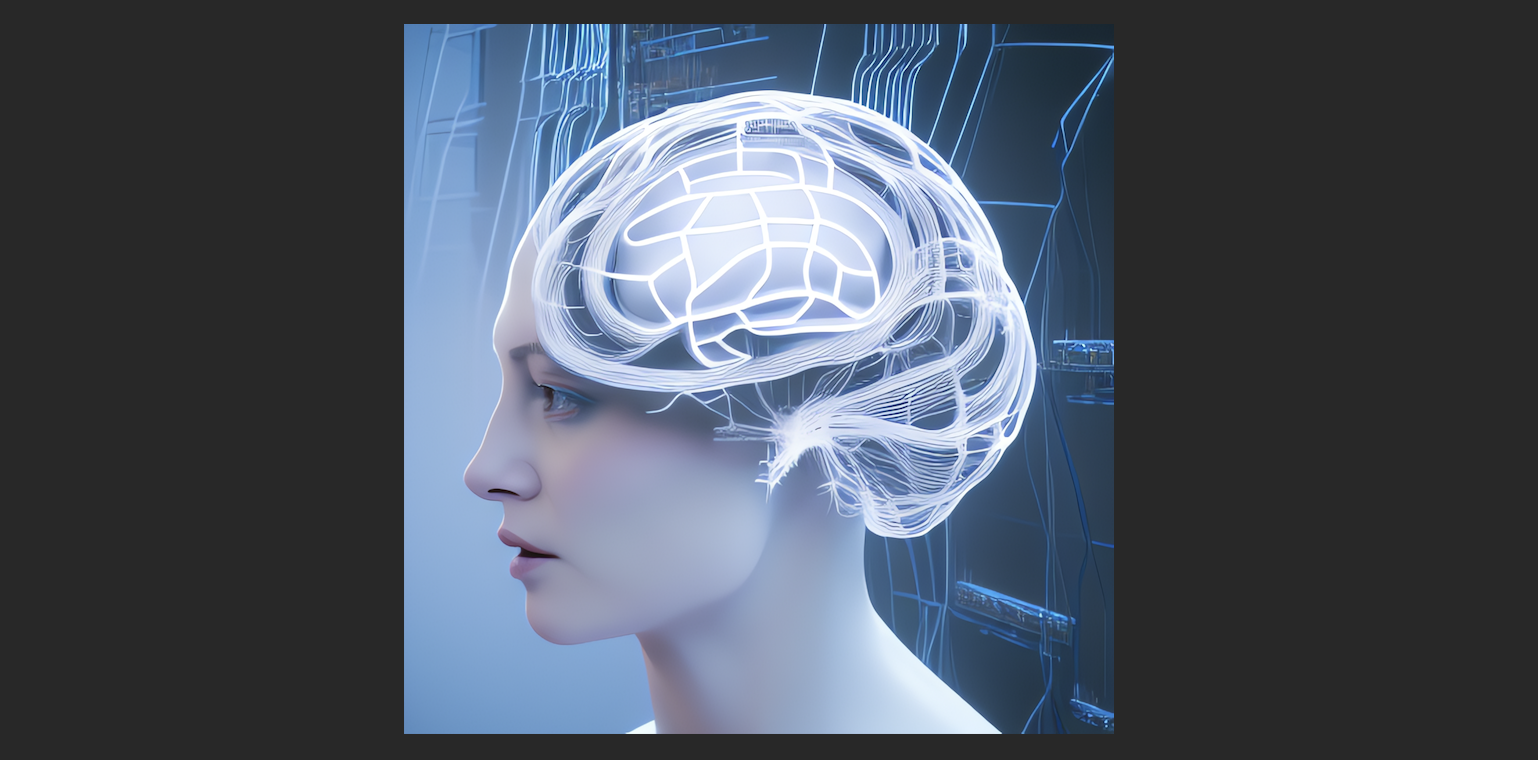In the War Between OpenAI and Google, Humanity Wins
 Anirudh Asher
Anirudh Asher
As the ongoing battle between tech behemoths OpenAI and Google continues to unravel, it's becoming increasingly clear that the real victor emerging from this unprecedented technological tussle is not an artificial entity but rather humanity itself.
Let's dissect this fascinating landscape, tracing the trajectories of both organizations, their innovations, and the reverberating impacts on society. Let's explore how the rivalry between OpenAI and Google, two titans in the field of artificial intelligence (AI), is essentially a victory for humankind.
OpenAI, the cutting-edge research organization, has been instrumental in pioneering the development of large language models like GPT-4, a shining testament to the power of AI in enhancing human cognition. Google, on the other hand, a stalwart in the tech industry, has been unrelenting in its mission to organize the world’s information through AI-driven technologies such as Google Search and Google Assistant.
Firstly, to understand the scale of this victory for humanity, we must grasp the sheer power of these AI models. GPT-4, OpenAI's generative pre-trained transformer, has demonstrated its capability to generate human-like text, offering an unprecedented level of assistance in various tasks ranging from writing essays, creating software code, and even producing poetry. Google's AI has been equally impressive, powering an array of services from search algorithms to machine learning tools that revolutionize how we interact with the digital world, as well as the ever evolving Bard.
The implications of these advancements are profound. They're not just creating smarter machines; they're augmenting human capabilities, pushing the boundaries of our collective intelligence. We're witnessing a paradigm shift where AI is no longer just a tool, but a partner in our intellectual endeavors.
The competition between OpenAI and Google has catalyzed rapid advancements in AI, a phenomenon dubbed 'coopetition' – cooperative competition. This race has fostered a surge in AI research and development, leading to improvements in natural language processing, deep learning, and machine learning models.
Beyond technological advancements, the rivalry has spurred a renewed emphasis on AI ethics and safety. Both OpenAI and Google have committed to ensuring the benefits of AI are shared broadly and used in a manner that safeguards humanity. This commitment is reflected in OpenAI's Charter, focusing on long-term safety and technical leadership, and Google's AI Principles, emphasizing beneficial and accountable AI.
The competition also fosters a climate of transparency, with both entities sharing their research (to the extent possible given safety and security concerns) with the broader scientific community. This openness accelerates the democratization of AI, allowing more people to access, understand, and utilize these powerful technologies.
Moreover, as AI becomes increasingly integrated into our everyday lives, the societal implications are profound. From improving healthcare diagnostics to personalizing education, enhancing accessibility, and combating climate change, these technologies are driving societal progress at an unprecedented scale.
In healthcare, AI algorithms are helping doctors make more accurate diagnoses, and predictive models are enabling personalized treatment plans. In education, AI is enabling personalized learning experiences, adapting to each student's learning style and pace, and opening up opportunities for lifelong learning. In terms of accessibility, AI is empowering people with disabilities, offering tools like real-time speech-to-text transcription and predictive text functionalities.
In the battle against climate change, AI is playing a crucial role. It's helping to optimize energy use in data centres, predict weather patterns for more efficient renewable energy use, and provide insights into climate change effects.
However, this rapid advancement is not without challenges. Concerns about AI misuse, privacy, job displacement, and the digital divide persist. Both Google and OpenAI recognize these issues and are investing in research and policies to address them. For instance, OpenAI's commitment to 'broad and long-term public goods' ensures that its primary duty is to humanity, promising to act diligently in case of conflicts of interest among employees and stakeholders. Google, too, has shown its commitment to creating socially beneficial AI, with clear guidelines against technologies that cause harm or disproportionately concentrate power.
The tech giants are not just investing in solving today's problems but are also planning for the future. OpenAI's focus on long-term safety and Google's work on explainable AI are prime examples of their efforts to make AI safe, understandable, and controllable as it continues to evolve.
In the job market, AI is perceived as a double-edged sword. While it's true that automation threatens certain jobs, the advent of AI also creates new roles and opportunities. Both OpenAI and Google are committed to managing this transition responsibly. Google, through its Google Career Certificates program, is providing job seekers with training in high-demand fields. OpenAI, on its part, is focused on the widespread distribution of benefits and is working towards ensuring AI and AGI (Artificial General Intelligence) do not harm humanity or concentrate power unduly.
The digital divide remains another critical concern. As AI technologies become more pervasive, there's an increasing need to ensure that these benefits are equitably distributed. Again, both organizations are taking strides in this direction. Google's numerous initiatives, like Google Station, provide free Wi-Fi to countries with limited access, while OpenAI’s mission explicitly outlines its commitment to ensuring any influence over AGI’s deployment is used for the benefit of all.
In conclusion, the race between OpenAI and Google is not just about technological supremacy. It's a race to redefine humanity's future, a race where the finish line is continually moving forward. And as these tech giants continue to compete, innovate, to challenge each other, it's humanity that gets to ride along, reaping the rewards of their shared progress.
In this war, humanity is not a mere bystander. We are the ultimate winners. Through the advancements propelled by OpenAI and Google, we are witnessing a world where AI is not a threat but a partner, augmenting human potential and pushing the boundaries of what we can achieve.
As we continue to navigate this AI-enhanced landscape, it's essential to remember that while technology can guide us and improve our lives, it's our collective responsibility to steer it towards the greater good. As we embrace the promise of AI, we must also uphold the principles of fairness, transparency, and inclusivity, ensuring that this victory for humanity benefits all.
In the grand scheme of things, the OpenAI vs. Google narrative is more than a story of competition. It's a testament to human innovation, resilience, and the unwavering pursuit of progress. In the war between these AI giants, humanity doesn't just win; humanity evolves, learns, and transcends its limitations. That's a story worth telling. And that's a story we're all part of.
Subscribe to my newsletter
Read articles from Anirudh Asher directly inside your inbox. Subscribe to the newsletter, and don't miss out.
Written by

Anirudh Asher
Anirudh Asher
Founder and Lead Innovator at Atomic Asher LLP